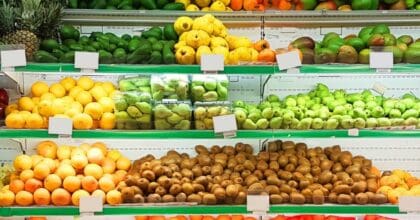More than ever before, European consumers are buying into organic. Mintel consumer research reveals that on average three-quarters of consumers in five European markets surveyed buy organic food and drink products, with one-third of respondents claiming to do so once a week or more.
One of the key selling points for organic food and drink is their clean label credentials, as consumers increasingly avoid products that might contain anything artificial or chemical-sounding. Besides enjoying a perceived health halo due to their clean label profile, organic food and drink products are often being seen by consumers as the healthy and ethical choice. With trust, transparency and traceability becoming more important factors in consumers’ purchasing decision, products with organic certification provide an extra stamp of assurance.
The organic food sector has traditionally thrived on the safe ingredients ticket, but things are evolving. While green and social considerations are proving popular with consumers, a new breed of organic product is emerging, where ‘organic’ is not always the main marketing message. This is especially relevant for the Millennial and Gen Z generations of consumers, whose expectations of sustainability, integrity, and advocacy are putting an increasing pressure on the food and drink industry.
A Mintel survey highlights that for this generation of organic consumers, the social and environmental impact of consumption is of great importance. When it comes to the motivations of buying organic foods, European organic food and drink buyers aged 16-24 are more likely to be driven by ethical and environmental reasons compared to an average across all age groups.
To satisfy these increasingly complex requirements, organic brands are re-inventing themselves to widen consumer appeal, bringing all relevant credentials under one roof. Organic claims are becoming increasingly embedded in a wider health and ethical positioning, as the organic industry seeks to appeal to discerning consumers with increasingly creative formulas and recipes.
What we think
Going forward, the Millennial generation will present a major challenge and opportunity for organic brands in Europe. Establishing a strong brand identity and developing more meaning will be a vital element to appeal to core values of young consumers. Organic brands must be willing to walk the talk, adhering to the fundamental principles of organic ethos and backing up their marketing promises.
A longer version of this article was published in BioPress on September 13. You can find the original article in German here.
Find out more about organic consumers in Europe at Anuga this year, where Katya Witham will hold a presentation on this topic.








































